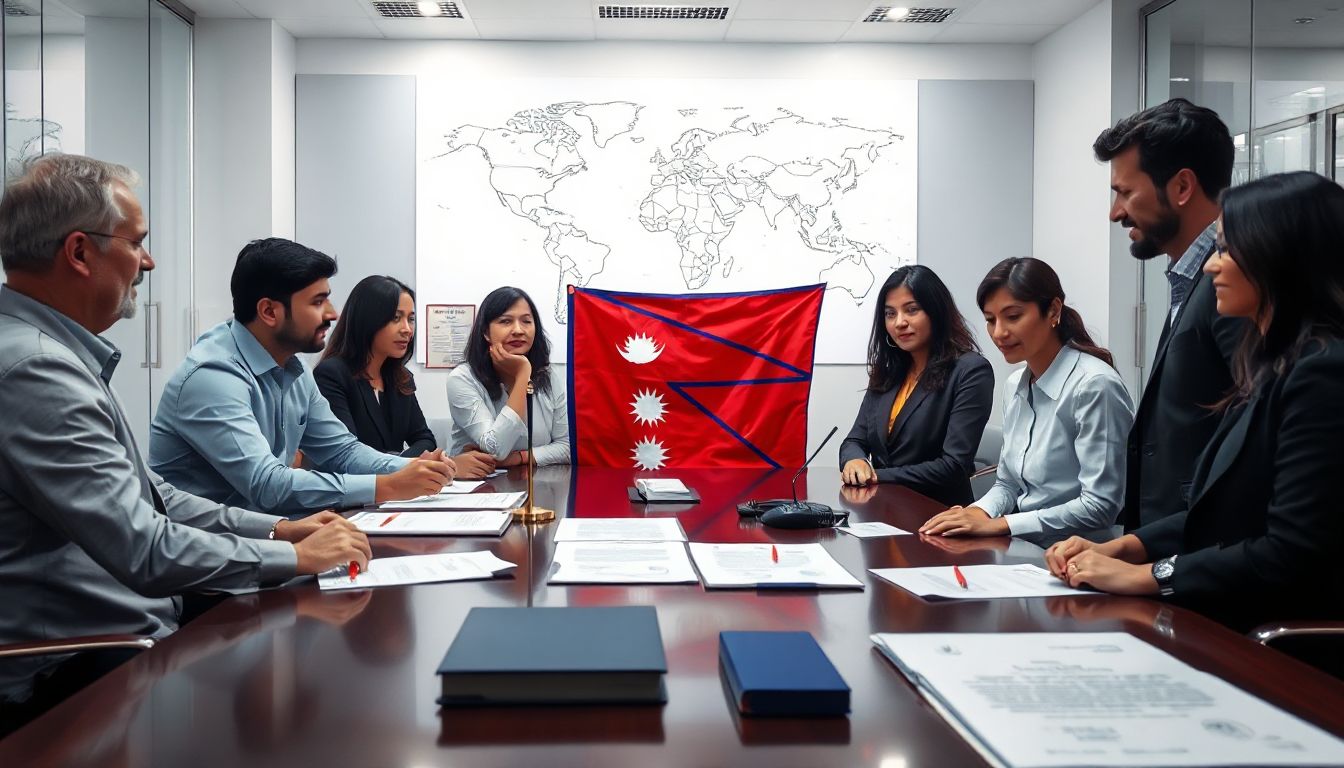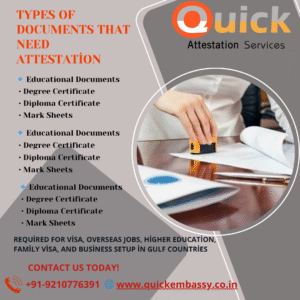
MOFA Attestation vs Apostille in Nepal: Which One Do You Need?
Introduction
Getting your documents ready for international use can be complex. Whether you want to study abroad, get a job, or start a business overseas, authenticating your papers is essential. But many people in Nepal get confused about whether they need MOFA attestation or an apostille. Understanding the difference can save you time, money, and stress. This guide explains which method fits your needs based on where you are headed and what you have to submit.
Overview of Document Authentication in Nepal
What is Document Authentication?
Document authentication means verifying that your papers are genuine. This process is required before your documents are accepted overseas. It proves that your certificates, licenses, or papers are real and trustworthy. Without proper authentication, foreign authorities might reject your application or claim your documents are fake.
Importance for Nepalese Citizens
Many Nepalese seek international opportunities. Whether attending a university, applying for a visa, or doing business abroad, authentic documents make the process smoother. As migration and globalization grow, the need for official validation becomes more critical. Proper authentication helps your documents meet foreign country standards and speeds up approval.
What is MOFA Attestation?
Definition and Process
MOFA attestation is a formal process performed by the Ministry of Foreign Affairs (MOFA) in Nepal. It confirms that your document has been legally verified locally before being used abroad. The typical process involves notarization, then validation by relevant authorities, and finally, MOFA attestation. Each step makes your document more trustworthy in foreign eyes.
When is MOFA Attestation Required?
MOFA attestation is often needed for countries outside the Hague Convention, especially in South Asia and the Middle East. For example, if you want a work visa in Saudi Arabia or Qatar, you usually need MOFA attestation. Some companies or governments mandate this process for certain documents like education certificates, marriage papers, or business agreements.
Benefits and Limitations
One advantage of MOFA attestation is its wide acceptance in countries that do not recognize the apostille. Still, it can take longer—sometimes weeks—to complete. Also, it’s less common in countries that follow international standards, making the process less streamlined.
What is Apostille?
Definition and International Standards
An apostille is a special certification from the Hague Treaty of 1961. It confirms that a document is genuine and ready for use in countries part of the Hague Convention. This international standard simplifies the process because one apostille is enough for many countries.
Countries Recognizing Apostille
Countries like the United States, Canada, Australia, much of Europe, and South Korea accept apostilled documents. But not all nations are part of this treaty. Nepal is not yet recognized under the Hague Convention, so apostille isn’t a standard option here.
Process of Obtaining an Apostille
To get an apostille, your document must be notarized first. Then, it is submitted to the authorized authority—such as the Office of the Attorney General or a designated government office—for legalization. Once approved, the apostille certificate is issued quickly, often within a few days. You’ll need copies of your documents and identification for the process.
Benefits and Limitations
Apostilles are faster and more widely accepted—saving time and effort. But since Nepal isn’t part of the Hague Convention, you can’t directly get an apostille here. Instead, governments of your destination country might require different types of authentication, such as MOFA attestation.
Comparing MOFA Attestation and Apostille
Geographical Acceptance
- MOFA Attestation: Accepted in many non-Hague countries, especially in South Asia, the Middle East, Africa.
- Apostille: Recognized in most Western countries and nations part of the Hague Convention.
Imagine trying to use your documents in different continents—knowing which document authentication your destination country accepts makes all the difference.
Cost and Time Efficiency
Apostilles generally cost less and take less time—sometimes just a few days. MOFA attestation might take longer, sometimes up to a month, depending on your documents and processing volumes. Budget-conscious and urgent cases prefer apostille if possible.
Types of Documents Coverable
Both methods can be used for:
- Educational certificates
- Marriage papers
- Birth and death certificates
- Commercial documents like invoices and licenses
However, always confirm whether your specific document is eligible for the chosen process.
Use Cases and Scenarios
- MOFA Attestation: Ideal if you’re going to countries like India, Saudi Arabia, or Nepal itself. Common for work, immigration, or business purposes where local recognition is needed.
- Apostille: Best suited if moving to the U.S., Europe, or other Hague signatory nations. Usually faster and more straightforward.
Which One Do You Need?
Factors to Consider
- Destination country’s rules: Does it accept apostille or require MOFA attestation?
- Type of document: Is it an educational certificate, business license, or personal ID?
- Time and budget: Do you need quick validation, or can you wait?
Expert Recommendations
Legal and immigration experts advise checking each country’s embassy website. If they specify, follow those instructions. When in doubt, consult an authorized agency experienced in Nepal’s document authentication.
Actionable Tips
- Always verify requirements before starting.
- Gather original documents and notarized copies.
- Engage professionals for smooth processing.
- Keep copies of all submissions for your records.
Conclusion
Understanding the key differences between MOFA attestation and apostille is crucial when dealing with international documents from Nepal. MOFA is more common in non-Hague countries, while apostille offers faster, easier recognition in Hague countries. Always check the specific requirements of your destination country before choosing a method. Proper planning ensures your documents will be accepted and avoids unnecessary delays. When unsure, consult official sources or legal experts for guidance. Proper authentication opens doors to overseas opportunities and makes international dealings smoother.

